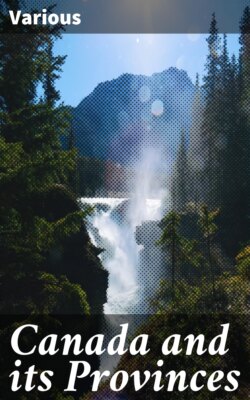Читать книгу Canada and its Provinces - Various - Страница 23
На сайте Литреса книга снята с продажи.
A Constructive Statesman
ОглавлениеTable of Contents
The year, then, of the Rebellion Losses Bill marks the decease of ancient and unreasoning toryism; and it became possible for John A. Macdonald to plan a reconstructed conservative party on more general lines. It is this change in party relations which gives its importance to the foundation of two organizations towards the end of the year. In December the Annexation Association, which was formed out of a curious blend of genuine sympathizers with the United States, and tories alienated partly by Elgin’s support to their opponents, partly by British commercial injury to Canada, issued an address to the people of Canada, in which the remedy prescribed for all their woes was ‘a friendly and peaceful separation from British connection, and a Union upon equitable terms with the great North American Confederacy of Sovereign States.’ The movement was confined mainly to Montreal, but it found sympathizers here and there throughout Canada, and the nature of its programme made it seem something far more formidable than was suggested by the number of its adherents. It was in answer to this seemingly fatal stroke at ancient tory policy and prestige that Macdonald began his work of conservative reconstruction, by suggesting, in opposition, a British American League, which should divert the existing feelings into less dangerous channels. With the genius for expedients which was to distinguish that great constructive statesman, Macdonald, not satisfied with a tame assertion of loyalty to Britain, brought forward the idea of which he became the most potent exponent, Federal Union. His hand framed the address of 1850, in which were the significant words:
To urge our legislature by petition to pass an address to our gracious sovereign, and both Houses of Parliament, praying them to authorize by an Act, the people to whom they profess to have already granted self-government, to hold a general Convention of Delegates for the purpose of considering and preparing a constitution for the government of this province, and with power to act in concert with delegates from such of the other British provinces in North America as may be desirous to form a federal Canada.
It was perhaps natural that Elgin should feel coolly towards any idea recommended by a party which had insulted him signally and persistently, and towards any individual associated with that party; but had he only known it, Macdonald was of all Canadians the man best fitted to carry on the governor’s policy of conciliation towards irritated interests and personages, and to develop the constitutionalism which had now been connected with its issue, Confederation.
But already we have entered a new year, 1850, in which the ministry was to add to its legislative prestige. The parliamentary session lasted from May 14 to August 10. At its commencement the governor-general had many proposals to make. He was able to assure Canadians that their navigation would now be free from the old laws; he suggested the need of modifying commercial relations between Canada and the United States, and between the separate British North American provinces. Parliament was directed to look to its own constitution, and the reorganization of justice in the province was not to rest after its labours of the preceding year. Even although much of this programme was merely pious aspiration, the session saw many useful acts passed, including the extension to Lower Canada of the municipal reforms effected in Upper Canada, and the sanctioning of railway and road construction enterprises.
